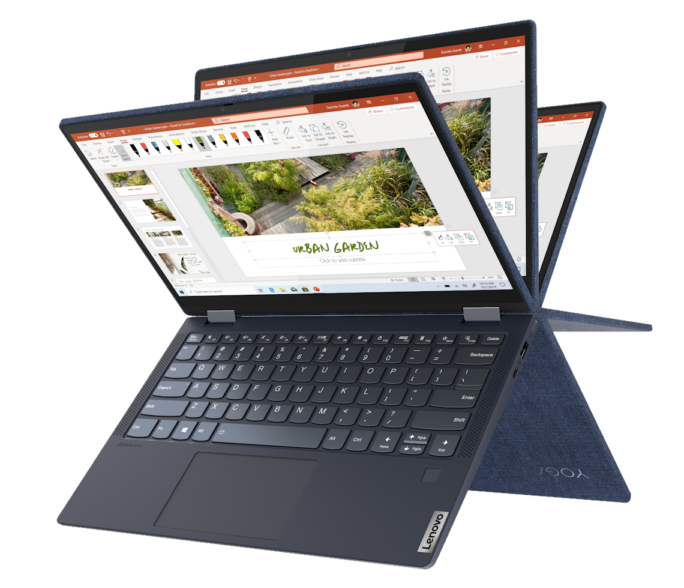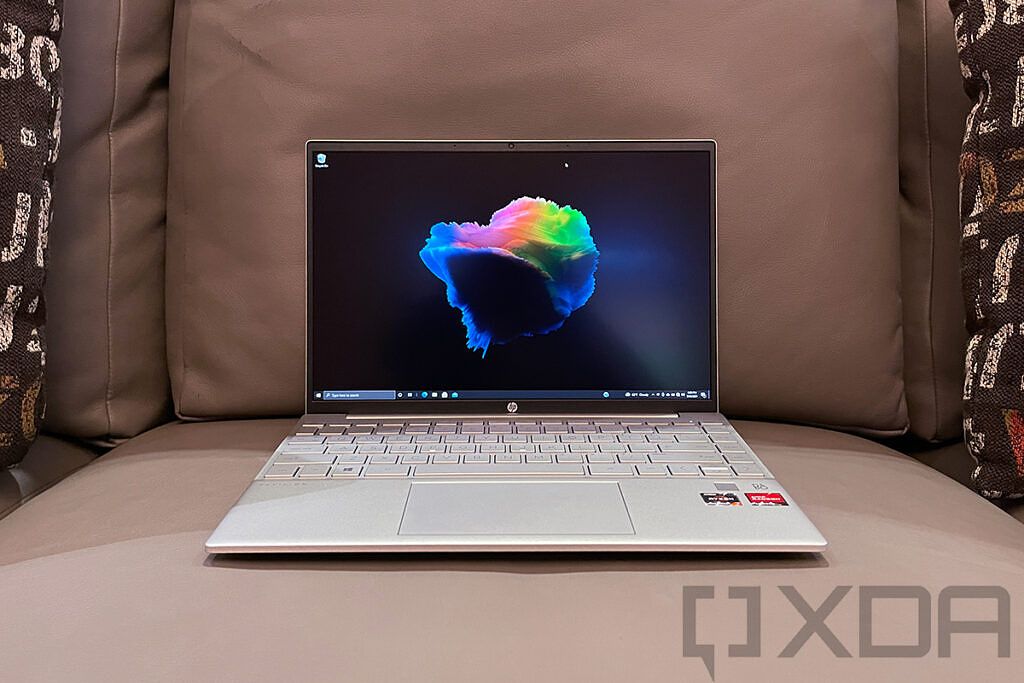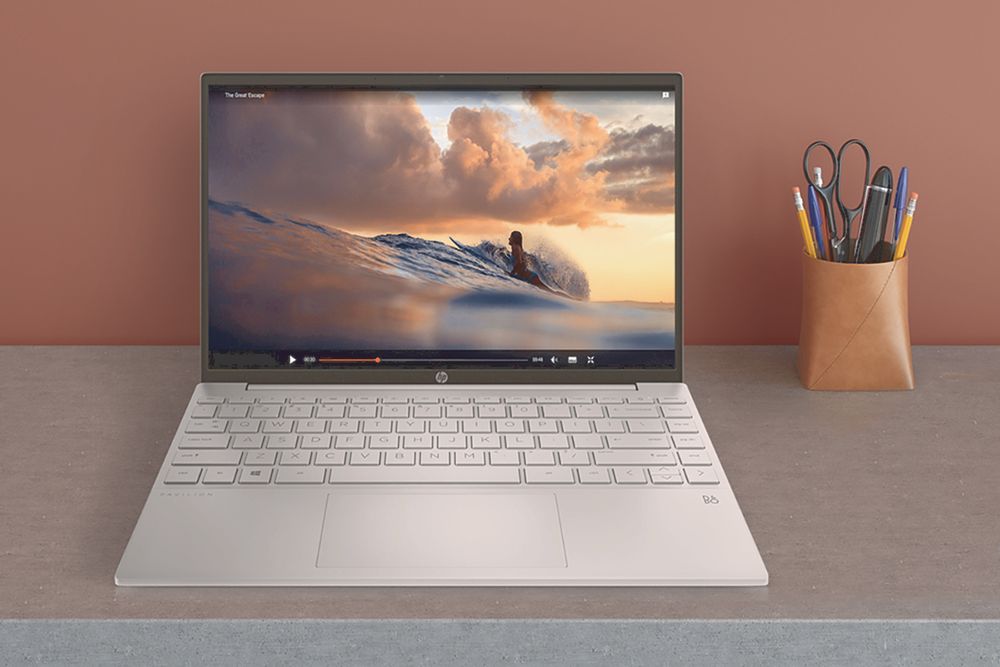HP recently launched the Pavilion Aero laptop, which the company says is its lightest consumer laptop yet. At less than 2.2lbs, it’s certainly lightweight and packs some power too, courtesy of the latest AMD Ryzen processors. It’s one of HP’s best laptops, but the laptop market is a crowded one and there’s always tough competition out there. In this match-up, we’re going to be pitting the HP Pavilion Aero vs the Lenovo Yoga 6, another 13-inch AMD-powered laptop that has a lot to offer. This is also one of Lenovo’s best laptops, specifically in the budget segment.
Just looking at the display size and processors, these laptops may seem similar, but there’s actually quite a bit that’s different. Most of the time, it’s not just about performance. Making a choice needs to take into consideration design elements and extra features each device offers. Let’s take a look at what each of these laptops brings to the table, and why you might prefer one over the other.
Specs
While specs aren’t everything in a laptop, as we just said, it’s always good to know what’s inside each of the laptops. This offers a solid ground for comparison, even if there’s a lot more that needs to be considered. Here’s how these two laptops stack up:
| HP Pavilion Aero | Lenovo Yoga 6 | |
|---|---|---|
| Processor |
|
|
| Graphics |
|
|
| RAM |
|
|
| Storage |
|
|
| Display |
|
|
| Audio |
|
|
| Webcam |
|
|
| Windows Hello |
|
|
| Battery |
|
|
| Ports |
|
|
| Connectivity |
|
|
| Colors |
|
|
| Size (WxDxH) | 11.72 x 8.23 x 0.67 in (297.69 x 209.04 x 17.02 mm) | 12.13 x 8.12 x .67 – 0.72 in (308 x 206.4 x 17 – 18.2 mm) |
| Weight | <2.2 lb (<997.9 grams) | 2.91 lb (1.32 kg) |
| Starting price | $749.99 | $749.99 (varies) |
Design: Clamshell or convertible?
The differences between the HP Pavilion Aero and the Lenovo Yoga 6 start right away with the form factor and that alone can make the decision for you. The Pavilion Aero is a typical clamshell laptop, while the Yoga 6 is a convertible. If you just want a basic laptop form factor, then the Pavilion Aero might work. But for someone like me, who loves convertibles, there’s no debate that the Lenovo Yoga 6 is more appealing. You can rotate the screen all around and use it as a touchscreen, which is simply more fun and natural. Plus, the Yoga 6 also supports active pens — although you’ll need to buy it separately.

In terms of looks, it’s fair to say these two laptops trade blows. HP went the extra mile and offers four different color options for the Pavilion Aero, which is great to see. Most laptops these days only give you one or two color options, and very often they’re neutral tones. It’s always great to see a company offer more options.
On the other hand, the Lenovo Yoga 6 only comes in Abyss Blue, but it has an ace up its sleeve. The top half of the laptop is covered in fabric, and it looks amazing. It’s classy and elegant and stands out tremendously. Plus, it can give you a more comfortable grip. Both laptops score points here, but I’d personally give the win to the Lenovo Yoga 6.
As far as ports go, both of these laptops miss out on Thunderbolt support, since they have AMD processors. However, the HP Pavilion Aero has a USB Type-C port with a 10Gbps signaling rate, which gives it the potential to be faster than any of the ports on the Lenovo. HP also includes an HDMI port, which is still the most common display input on monitors and (especially) TVs.
On the other hand, the Lenovo Yoga 6 has fully transitioned to USB Type-C for charging (and thus has two Type-C ports), while HP still has a proprietary barrel-type charger.

There’s something else that’s missing in the HP, and that’s Windows Hello support. The laptop doesn’t have an IR camera and the fingerprint sensor is not there by default, so if you want to keep your computer safe, you’ll need to use a password or PIN. That’s an odd omission considering how so many mainstream laptops now have some kind of biometric authentication. The Lenovo Yoga 6 at least has a fingerprint reader below the keyboard, which makes unlocking your PC much easier.
“(…)while both laptops are relatively light, the HP Pavilion Aero is the clear winner in terms of portability.”
Finally, while both laptops are relatively light, the HP Pavilion Aero is the clear winner in terms of portability. It weighs under 1kg, or 2.2lbs, which makes it very easy to carry anywhere. The Lenovo Yoga 6 starts at 2.91lbs, which is significantly more. That tends to be the case with convertibles, but it’s still a significant difference, and if you’re carrying it in a backpack for hours, you might notice it after a while. The HP Pavilion Aero is also thinner and less wide than the Yoga 6, though it’s taller. That’s partly because of the display, which we’ll get to next.
Display: The HP Pavilion Aero has a taller, sharper, and brighter screen
If you pay attention to the more premium segment of the laptop market, you’ve probably already seen a few devices with taller displays. For many years, almost every laptop used a 16:9 aspect ratio, and that was mostly to match the aspect ratio of DVD movies and shows. In recent years though, we’ve seen a few premium laptops like the Microsoft Surface family, MacBook, and others using 3:2 or 16:10 aspect ratios.
The HP Pavilion Aero is one of the first to bring that to the mainstream market. Specifically, it has a 16:10 aspect ratio, and that means you get a little extra vertical space. It may not sound like much, but this difference lets you see more text while browsing the web or writing up a document, which can be very convenient.
That’s not all it brings. If you’re willing to shell out a bit more, you can pay for the 2560 x 1600 panel, which is much sharper and makes everything a little easier on the eyes. With the Lenovo Yoga 6, your only option is a 16:9 Full HD panel.

If that wasn’t enough, the screen on the Pavilion Aero goes up to 400 nits of brightness, which is a big deal if you want to use it outdoors. The Lenovo Yoga 6 goes up to 300 nits, which is good enough to use indoors but can be hard to see under direct sunlight.
On the other hand, as we’ve mentioned, the Lenovo Yoga 6 is a convertible, so that display is a touchscreen. You don’t get that option at all with the Pavilion Aero, which might be an important factor for you. However, there’s no denying that, in terms of the quality of the display, HP easily has Lenovo beat in almost all areas here.
“(…)in terms of the quality of the display, HP easily has Lenovo beat in almost all areas here.”
As for sound, the two laptops are similar. The HP Pavilion Aero has two speakers with sound tuned by Bang & Olufsen (B&O), but there’s no mention of support for Dolby Atmos. The Lenovo Yoga 6 has stereo speakers and it claims support for Dolby Atmos, which can offer extra immersion when watching movies or shows.
Both laptops also have 720p HD cameras, which are probably fine for day-to-day use. Most laptop webcams aren’t that great, and you shouldn’t expect anything mind-blowing from either one, but they’re both acceptable.
Performance: The Pavilion Aero has faster processors than the Yoga 6
Both of these laptops have AMD Ryzen 5000 series mobile processors, up to 1TB of storage, and 16GB of RAM. That may seem like both laptops are exactly on the same level, but there are some differences here.
The HP Pavilion Aero is using processors with slightly higher clock speeds, despite being very similar. For example, the Ryzen 5 5500U in the Lenovo Yoga 6 has a base clock of 2.1GHz and it can boost up to 4GHz, but the Ryzen 5 5600U in the HP Pavilion Aero has a 2.3GHz base clock and 4.2GHz boost clock. In the case of the Ryzen 7, the integrated Radeon Graphics in the HP Pavilion Aero are also slightly faster than those of the Lenovo Yoga 6.
Looking at GeekBench scores, the difference is noticeable. Benchmark results for the Pavilion Aero with a Ryzen 5 5600U often seem to be upward of 1,200, a score that’s almost never seen for the Ryzen 5 5500U. A similar story happens with the Ryzen 7 models. The Ryzen 7 5800U often breaks 1,300, sometimes 1,400, but the Ryzen 7 5700U never seems to come close.

One area where HP seems to make some odd choices is wireless communication. The default configuration still only supports Wi-Fi 5 and Bluetooth 4.2, both of which have been superseded. There are options for Wi-Fi 6 and Bluetooth 5.2, but you have to specifically select them. HP’s website makes this a little weird because there’s no extra cost if you choose the upgraded version, but at least that means you don’t have to think about whether you should upgrade. You’ll always want to choose the newer models.
HP Pavilion Aero vs Lenovo Yoga 6: bottom line
It’s fair to say that in the areas that are objectively comparable, the HP Pavilion Aero is a more compelling offering compared to the Lenovo Yoga 6. You get faster processors, a faster USB Type-C port, and a display that’s better in almost every way. It can get brighter, you can get it at a higher resolution, and it has a tall aspect ratio that makes it better for productivity. To round things out, it’s also lighter and more portable.
“(…)if you want the most performance, the best display, or the best portability, the HP Pavilion Aero pulls off a convincing victory here.”
But it’s not always about the objective specs. The Lenovo Yoga 6 does offer versatility thanks to the convertible form factor. If you love using touchscreens and fancy using your PC as a tablet every now and then, that’s the option you want. You can even use it to draw with an active pen. Plus, the Lenovo Yoga 6 uses a USB Type-C charger by default, so you’re less likely to worry about not having the right charger.

Finally, you may also want to consider looks. HP offers a few colors to choose from for the Pavilion Aero, so you’re more likely to find something that suits your taste. But the Lenovo Y0ga 6, despite only coming in one color, is far more unique than any of HP’s color options. That fabric coating is just not something you see every day, so you have to give it points for that.
If it was me making the choice, I would probably still go with the Lenovo Yoga 6 for its form factor. But if you want the most performance, the best display, or the best portability, the HP Pavilion Aero pulls off a convincing victory here. You can buy either one from the links below, or check our roundup of the best AMD-powered laptops to check out some other options.
- The Pavilion Aero is HP's lightest consumer laptop, but it still packs a punch. With poweful AMD Ryzen processors, and a tall and sharp display, it's extremely comptetent for its price.
- The Lenovo Yoga 6 is a powerful AMD-based convertible that's got a lot to offer. It has a stylish fabric-covered design, a fingerprint reader for Windows Hello, and top-notch specs.
The post HP Pavilion Aero vs Lenovo Yoga 6: Which is the best mainstream laptop? appeared first on xda-developers.
from xda-developers https://ift.tt/2VxsbgD
via IFTTT



Aucun commentaire:
Enregistrer un commentaire